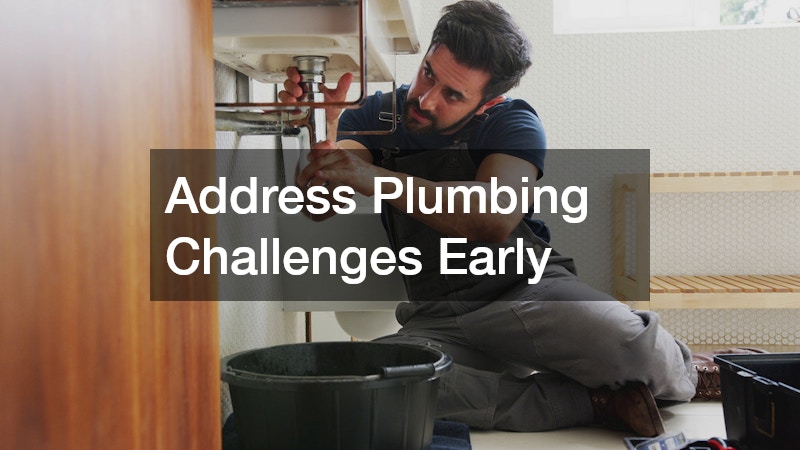Construction projects involve juggling multiple tasks, deadlines, and teams, which can quickly become overwhelming without proper planning. Safety, cleanliness, and efficiency are the cornerstones of a successful build. Whether managing a small commercial project or a large industrial site, understanding how to coordinate resources, equipment, and personnel is essential.
From site preparation to the final finishing touches, each phase presents unique challenges. A well-organized project not only reduces costs and delays but also protects workers and preserves the quality of work. Incorporating the right services and tools ensures every task is completed safely and effectively, minimizing accidents, environmental hazards, and equipment downtime.
In this guide, we’ll explore actionable strategies to optimize construction workflows. Each section highlights practical approaches, from managing supplies and temporary facilities to enhancing air quality and structural integrity. By integrating these tips, construction managers and contractors can maintain a productive, safe, and visually organized job site—earning client trust and improving project outcomes.
Streamline Materials Management

Keeping the right materials on hand is essential to avoiding costly downtime on any construction site. Industrial supplies form the backbone of daily operations, from fasteners and power tools to protective gear and safety equipment. Ensuring these items are readily available allows workers to stay productive without waiting for replacements or improvising with inadequate substitutes.
A robust inventory system is key. Track stock levels regularly, set reorder thresholds, and schedule deliveries in advance to prevent shortages. Proper storage is equally important—organize materials using clear shelving, standardized labeling, and protective containers to reduce clutter and make items easy to locate. Segregate hazardous or delicate supplies to prevent damage and maintain safety.
Regular audits help identify slow-moving or excess inventory, keeping your supply area efficient and cost-effective. A well-organized stockroom not only speeds up workflow but also supports safety by reducing trip hazards and accidental misuse of equipment. When your team can quickly access the tools and materials they need, productivity improves, delays decrease, and overall project efficiency rises. Thoughtful materials management is a simple yet powerful way to keep construction projects running smoothly and safely.
Create Comfortable Temporary Facilities
Providing on-site convenience is crucial for keeping construction teams productive and satisfied. Bathroom trailers offer clean, accessible restroom facilities directly on the job site, reducing interruptions and supporting proper hygiene throughout the workday. When workers don’t have to leave the site for basic needs, time is saved, and workflow remains consistent.
Strategic placement of these trailers is important. Positioning them near high-traffic areas or central locations prevents long walks during breaks and ensures that facilities are easy to access for all team members. Regular maintenance—including water refills, waste disposal, and cleaning—is essential to keep conditions sanitary and prevent health risks.
Investing in quality temporary facilities demonstrates that you value your workforce. Comfortable and well-maintained restrooms improve morale, encourage adherence to safety protocols, and minimize complaints. Workers who have access to convenient, hygienic facilities are more focused, efficient, and motivated, contributing to overall project productivity. Beyond meeting basic needs, thoughtfully provided temporary facilities reflect a commitment to professional site management, worker well-being, and operational efficiency.
Manage Waste Efficiently
Construction sites generate a substantial amount of debris, ranging from packaging materials to demolition remnants. Partnering with a dumpster rental service provides a practical, organized solution for keeping waste contained, the site tidy, and safety risks minimized. Without proper disposal methods, cluttered areas can lead to accidents, delays, and decreased productivity.
Implementing a regular pickup schedule is key to preventing overflow and maintaining order. Where possible, segregate materials for recycling, such as wood, concrete, metals, and plastics. Clearly labeling each dumpster helps workers dispose of items correctly, reducing contamination and improving recycling efficiency. This organized approach not only supports sustainability but also streamlines daily operations.
A clean and well-managed site promotes safety by keeping walkways free of tripping hazards and ensuring heavy machinery can move without obstruction. Additionally, it reflects professionalism to clients, inspectors, and subcontractors. Proper waste management demonstrates environmental responsibility and compliance with local regulations, helping avoid fines or shutdowns. By using a reliable dumpster rental and implementing smart waste strategies, construction teams can work more efficiently, maintain high safety standards, and contribute positively to environmental stewardship.
Promote Clear Signage
Effective communication is essential for maintaining order and safety on a construction site. Using signs and banners strategically helps direct workers, visitors, and delivery personnel, ensuring that everyone knows where to go and how to behave in different areas. Clear visual cues reduce confusion, prevent accidents, and improve overall site efficiency.
Safety warnings should highlight hazards such as high-voltage areas, heavy machinery zones, or slippery surfaces. Directional signs guide personnel to key locations, including offices, storage areas, and loading docks. Informational banners can also indicate the location of first aid kits, fire extinguishers, and emergency exits, allowing quick access during urgent situations. Updating signage regularly ensures that new hazards or changes in site layout are properly communicated.
Beyond safety, well-placed signs and banners contribute to a professional appearance, signaling to clients, inspectors, and subcontractors that the site is well-organized and carefully managed. They help enforce rules consistently and minimize errors caused by miscommunication. By prioritizing clear, visible, and informative signage, construction teams can enhance safety, streamline workflow, and maintain a positive impression while reinforcing a culture of accountability and attention to detail.
Address Plumbing Challenges Early

Reliable water and drainage systems are critical for construction site efficiency, safety, and hygiene. Partnering with plumbing repair services ensures that any issues—whether leaks, clogged pipes, or temporary water needs—are addressed promptly, keeping projects on schedule and preventing costly setbacks.
Regular inspections throughout the construction process help identify potential problems before they escalate, such as hidden leaks that could damage materials or compromise structural integrity. Temporary plumbing solutions, when coordinated with bathroom trailers, also support worker hygiene, allowing crews to maintain health standards without interrupting workflow.
By addressing plumbing challenges proactively, sites can minimize downtime caused by unexpected water issues. Preventing water damage safeguards building materials, electrical systems, and equipment, reducing repair costs and maintaining construction quality.
Moreover, well-maintained plumbing contributes to a safer working environment. Workers are less likely to encounter slippery surfaces or sanitation-related health issues, fostering better morale and efficiency. Investing in professional plumbing repair services not only ensures smooth operations during the project but also sets the foundation for a fully functional, move-in-ready property once construction is complete.
Prepare the Site Properly
Excavation is a crucial step in any construction project, laying the groundwork for everything that follows. Partnering with professional excavation services ensures the site is prepared accurately, safely, and efficiently, reducing the risk of costly mistakes or delays.
Experienced crews assess soil stability, identify potential hazards, and mark underground utilities before heavy machinery is used. This careful planning prevents accidents, protects surrounding structures, and ensures the foundation can be built to exact specifications. Proper excavation also allows for smooth workflow during later stages, from pouring concrete to installing utilities.
Using skilled professionals minimizes the risk of legal issues related to property damage or safety violations. It also helps prevent long-term structural problems, such as settling or uneven foundations, that could affect the building’s durability.
Investing in reliable excavation services not only safeguards workers and property but also contributes to overall project efficiency. A well-prepared site allows all trades to work more effectively, ensuring that timelines are met and quality standards are maintained throughout construction. Early attention to excavation sets the tone for a successful, safe, and cost-effective project.
Use Reliable Equipment
High-quality construction machinery and tools are essential for keeping projects on schedule and maintaining safety standards. Investing in dependable construction equipment ensures that every task, from excavation to finishing work, is performed efficiently and effectively.
Regular inspections, proper lubrication, and timely repairs prevent mechanical failures that can lead to costly downtime. Selecting the right equipment for each job also reduces worker fatigue and minimizes the risk of accidents, supporting a safer work environment. For example, using machinery designed for heavy lifting instead of manual labor prevents injuries and enhances productivity.
Tracking usage and implementing preventive maintenance schedules extends the lifespan of your equipment, reduces replacement costs, and creates a more predictable workflow. Well-maintained equipment allows teams to focus on quality work rather than troubleshooting broken tools or machinery.
A construction site with reliable construction equipment not only improves operational efficiency but also communicates professionalism and preparedness to clients, inspectors, and subcontractors. By prioritizing proper care and appropriate usage, projects can proceed smoothly, safely, and on time, ultimately contributing to overall success and cost-effectiveness.
Maintain Comfortable Work Environments
Creating a comfortable and safe on-site environment is essential for both productivity and the longevity of materials. Professional HVAC services play a crucial role in regulating temperature, controlling humidity, and ensuring proper ventilation in temporary offices, enclosed workspaces, or areas with climate-sensitive tasks.
Proper installation and routine maintenance of heating, ventilation, and air conditioning systems ensure consistent airflow, stable temperatures, and clean air quality. This helps prevent heat-related fatigue during warmer months and maintains warmth in colder conditions, keeping workers alert and focused throughout long shifts. Additionally, controlling humidity levels protects sensitive materials, such as wood, drywall, and paints, from warping, mold, or other moisture-related damage.
A well-maintained climate system also contributes to overall safety by reducing the risk of heat stress, respiratory issues, or condensation-related hazards. Workers perform more efficiently in a controlled environment, and machinery operates optimally when not exposed to extreme conditions.
Investing in reliable HVAC services demonstrates care for your workforce while supporting project quality and timelines. Comfortable workers are safer, more engaged, and more productive, which ultimately leads to smoother operations and fewer delays on construction sites.
Keep Electrical Systems Reliable
Electrical issues are a common cause of delays on construction sites. Wholesale electrical supplies ensure that crews have access to quality wiring, panels, and connectors to support ongoing work safely.
Maintaining a steady supply of reliable electrical components reduces interruptions and keeps temporary and permanent power systems functioning. Workers can complete tasks efficiently, from lighting to powering machinery.
Organized electrical management also prevents safety hazards such as exposed wiring or overloaded circuits, protecting both personnel and equipment. Proper preparation guarantees smoother workflow and compliance with safety codes.
Protect Structures From the Top Down
A reliable roof is one of the most critical elements in any construction project, particularly for commercial buildings where weather delays or water damage can create costly setbacks. Partnering with professional commercial roofing providers ensures that roofs are installed or repaired correctly, using high-quality materials that meet industry standards.
Proper roofing protects the structure from rain, wind, and other environmental factors, preventing water infiltration that could compromise insulation, electrical systems, or interior finishes. It also supports HVAC efficiency by maintaining consistent temperature control and reducing energy loss. Beyond functionality, a well-executed roof enhances the building’s aesthetic appeal and demonstrates professionalism to clients, investors, and inspectors.
Commercial roofing experts consider load-bearing capacity, material longevity, and proper drainage to safeguard the structure long-term. They also follow safety regulations, minimizing risks during installation.
By addressing roofing early in the construction timeline, you protect other trades from disruptions caused by leaks or weather exposure. This ensures that work on interior systems, finishing, and exterior elements proceeds without interruption. A solid roof establishes a foundation of durability, safety, and efficiency, keeping the entire project on schedule and maintaining the integrity of the investment from the top down.
Conclusion
Managing a construction project successfully requires more than just labor—it demands careful planning, attention to detail, and coordination across multiple trades. From managing industrial supplies and equipment to ensuring safety with signs, proper plumbing, and electrical solutions, every element contributes to a smooth, productive workflow.
Investing in temporary facilities, waste management, excavation, roofing, and climate control not only keeps workers comfortable and safe but also maintains project quality and timelines. Small improvements in organization, maintenance, and equipment use result in big gains in efficiency, safety, and client satisfaction.
By integrating these tips and leveraging professional services, contractors can reduce accidents, minimize downtime, and complete projects on schedule. A clean, safe, and well-organized site reflects professionalism, enhances morale, and ensures that each project runs as smoothly as possible from start to finish. Following these strategies will help you maintain high standards, reduce costly errors, and deliver exceptional results on every construction job.

